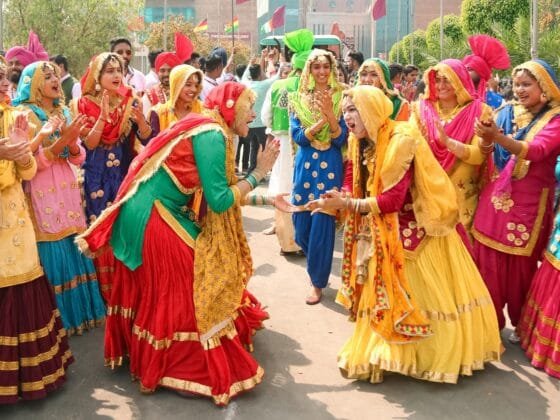A Picture of Patriarchal Ideology and Its Sufferers
Every woman has a story to tell. Sit with her and listen, she will appear like a book of ballads that sings a story of adventure, romance, tragedy, sentiments, and laughter. The ballad has characters playing the parts of villains, enemies, supporters, and oppressors, and the woman is the heroine of her story. She narrates her story and you will think as if you have covered the lifetime experiences of the maximum number of people. Through her life, you will learn about society and its ideology, the lifestyle of people from different classes, poverty, hopelessness, and whatnot.
I am today a third-person narrator describing the story of a woman, Nalini Jameela who has a similar ballad to sing. She has written her autobiography so that she could reach out to several people altogether. She unfolds the picture of patriarchal oppression that is shoved on women through her own experience. The experience as a middle-class Ezhava woman who is forced to become a sex worker due to poverty.

feminismindiacom
Nalini at the beginning of her story
Nalini, like the majority of women, has been subjected to patriarchal oppression. Her father, a Communist, was the patriarchal head of the family who used to beat his wife and do all the unnecessary things to show his power as a man in society. Her mother who was a working woman was compelled by her father to leave the job and stay back at home. This made her mother and the rest of the families dependent upon the man of the house. Also, it helped him to thrust his man authority into the house.
Looking at her mother’s miseries as a woman especially financially dependent on a man gave her a picture of the life and society she was a part of. Above all, she could see her life in the coming time and how important it is for her to be economically independent as a woman. Keeping this in her mind, she started working at the age of nine. She always stood for her rights, at least she tried! And not only for her but for her daughter as well from the cruelty of her husband.
Nalini was aware of her rights and knew where to raise her voice, unlike the other women who invest in patriarchal ideology. Her life experiences had her learn that women themselves contribute to male dominance. For example, her father’s sister-in-law used to have her hand on him to abuse his wife. Furthermore, when his brother got married, his wife influenced him to take an eye on his mother’s day-to-day activities which snatched her privacy. These incidents gave her knowledge of how patriarchy injects its ideology into women and then influences their daily lives.
Becoming a sex worker adds more suffering from patriarchal hands
Then a new point comes in her life when she becomes a sex worker. There also she comes to witness a different but the same patriarchy. She states that men who imply patriarchal power in their houses have the highest number of clients. These men, come to them as clients and believe that women in sex work are immoral and whores. They don’t see anything wrong with themselves. This is all Nalini’s personal experience and she also unfolds that such men take women as sex tools which they have the right to buy in exchange for money.
She recounts some incidents in her autobiography from her life indicating this notion of patriarchal men. She narrates that one day a policeman came to her as a client who picked her up from the street the next day. He beat her in the name of punishment for being a sex worker. She furthermore mentions another incident where one of her co-workers was beaten up badly for raising her voice to diminish the mishappenings taking place with sex workers. Unfortunately, the woman died the next day because of the fatal injuries.
Nalini’s life accounts that men with patriarchal ideology think that whatever they do is justified and they have the whole right to label women for their choices and actions, and above all, they as men can punish them or do whatever they feel is right with them. Most importantly, the ‘immorality’ and ‘character less’ words have no place in men’s disposition. These words only exist for women whose rights are in their hands alone. Nalini has mentioned other incidents of her two co-workers as well in her book where she shares that both of them committed suicide because of feuds with their families.
The picture of patriarchy in her life elaborates
Her life has taught her like many other women that they suffer because of patriarchy. Nalini’s whole life account is a clear picture of how she suffered at the hands of such men and women sharing this ideology. She believes that if this ideology wasn’t there, her life might have been different. The most powerful thing her life has illuminated her is to fight for the cause of sex workers’ human rights. She has raised her voice on numerous occasions against patriarchal oppression. Furthermore, she has also been speaking for the state’s negligence against the lives of sex workers.
The number of women living a life like Nalini’s is cosmic. Sadly, some accept this kind of life and contribute to it, and some don’t but stay silent. But Nalini is amongst the rare who don’t accept, rather stand up and fight for others’ cause as well. It is strong women like her who have been teaching humans to consider women as humans.
They have been enlightening people that men are not the only humans, women are also equally humans.
Nalini’s story has given many pictures of women’s lives and men’s roles in them. It has depicted how society is a failure to both women and men. How a wrong ideology and the desire of implementing power cause tragedy in women’s lives.
Women spend their whole lives as victims of domestic violence at home and sexual in the streets. Education is the first source of liberating yourself from this torture which eventually leads to authority in the means of financial independence. Besides, when you speak up for yourself, you are building steps for other women’s liberty as well. So, if you can’t stand up for yourself, at least stand for your future daughter and women coming into your life.
Bhanwari Devi: Meet The Precursor Of the MeToo Movement

 Add to favorites
Add to favorites








